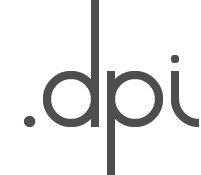Olga Goriunova (ed.): Readme 100: Temporary Software Art Factory (2006)
Filed under book, catalogue | Tags: · art, market, software, software art, software studies

“This book discusses projects and research completed in the framework of the Readme 100 Temporary Software Art Factory, which took place in Dortmund in November 2005 and was co-organized by Hartware MedienKunstVerein.
It deals with the topic of production as it relates to software, software art and software cultures. Thus, it focuses not only on software as a product itself, but also on the experiment of its production through methods including outsourcing, use of open source solutions and self-production. Topics addressed include economies of arts, desire and openness, harmony of markets, the unmarketable, reverse outsourcing, resistant mapping and others.
The result is a multi-faceted collection of project descriptions, illustrations, research texts and features relating to the theme of software art production.”
Authors include: Amy Alexander, Inke Arns, Christophe Bruno, Javier Candeira, Yves Degoyon, Elpueblodechina, Olga Goriunova, Francis Hunger, Sven Konig, Eric Londaits, Alessandro Ludovico, Ilia Malinovsky, Alex McLean, Special guest, Julian Rohrhuber, Alexei Shulgin, Leonardo Solaas, Mitchell Whitelaw, Renate Wieser.
Publisher Hartware MedienKunstVerein, Dortmund, 2006
ISBN 3833443693
168 pages
PDF (updated on 2016-12-23)
Comment (0)Nathan Ensmenger: The Computer Boys Take Over: Computers, Programmers, and the Politics of Technical Expertise (2010)
Filed under book | Tags: · computing, history of computing, programming, software

Like all great social and technological developments, the “computer revolution” of the twentieth century didn’t just happen. People—not impersonal processes—made it happen. In The Computer Boys Take Over, Nathan Ensmenger describes the emergence of the technical specialists—computer programmers, systems analysts, and data processing managers—who helped transform the electronic digital computer from a scientific curiosity into the most powerful and ubiquitous technology of the modern era. They did so not as inventors from the traditional mold, but as the developers of the “software” (broadly defined to include programs, procedures, and practices) that integrated the novel technology of electronic computing into existing social, political, and technological networks. As mediators between the technical system (the computer) and its social environment (existing structures and practices), these specialists became a focus for opposition to the use of new information technologies. To many of their contemporaries, it seemed the “computer boys” were taking over, not just in the corporate setting, but also in government, politics, and society in general.
Ensmenger follows the rise of the computer boys as they struggled to establish a role for themselves within traditional organizational, professional, and academic hierarchies. He describes the tensions that emerged between the craft-centered practices of vocational programmers, the increasingly theoretical agenda of academic computer science, and the desire of corporate managers to control and routinize the process of software development. In doing so, he provides a human perspective on what is too often treated as a purely technological phenomenon.
Publisher MIT Press, 2010
History of Computing series
ISBN 0262302829, 9780262302821
320 pages
publisher
publisher
google books
.dpi, Feminist Journal of Art and Digital Culture, 27: Hacktivism (2013) [English/French]
Filed under magazine | Tags: · art, feminism, floss, hackerspace, hacking, hacktivism, software, technology

“Founded by artist-run-centre Studio XX in 2004, in Montreal, the publication .dpi has recently undergone a major transformation in order to assert itself as a feminist journal of art and digital culture. In 2013, with continuing administrative and technological support from Studio XX, the journal .dpi became an independent project, with a new platform (beta version) and new team including permanent editor in chief, Sophie Le-Phat Ho, and a new editorial committee composed of Julie Alary Lavallée, Amber Berson, Esther Bourdages, Christina Haralanova, Corina MacDonald, Katja Melzer, Candace Mooers and Deanna Radford.
In a time when social gains are threatened, funding for artist-run-centres is precarious, and the need for intelligent critique is urgent, the new crew at .dpi wishes to respond to a real need for the creation of an interdisciplinary community of those at once curious and critical of technologies, feminisms and art.
Bringing together a dozen local and international participants, .dpi 27 presents a themed section on hacktivism coordinated by Christina Haralanova, a feminist activist and researcher who is interested by freedom in technology and open-source software. Hacktivism: the Art of Practicing Life and Computer Hacking for Feminist Activism brings together unique perspectives and critiques of the current state of hacktivism, a fusion of hacking and activism.”
Published in Montreal, April 2013
ISSN 1712-9486
View online (HTML articles, English)
View online (HTML articles, French)
Download h4x0rd version of the issue by Linda Hilfling (PDF, leetspeak English)
View past 26 issues (English)
View past 26 issues (French)

